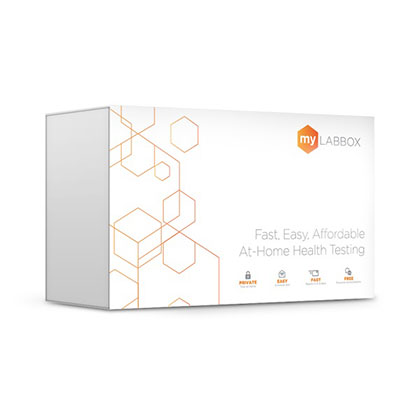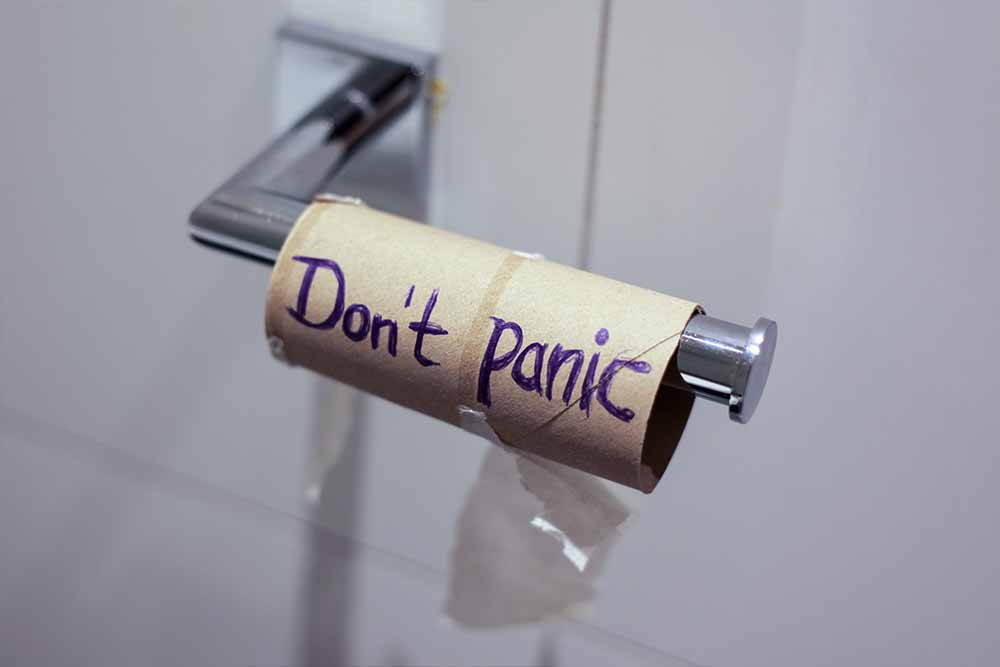Sexually transmitted diseases (STDs) are so common that pretty much everyone who is sexually active is at risk of contracting one. In fact, according to the World Health Organization (WHO), over 1 million STDs are acquired every day worldwide. And while estimates suggest that the majority of these infections are bacterial infections, which means they can be treated and cured, there are many that can’t be cured, otherwise known as viral infections.
Incurable STDS
Viral STDs are caused by a virus which means they can’t be completely healed, they are known as the four H’s: HIV/AIDs, herpes, hepatitis B, and human papillomavirus (HPV). Although there is no cure for these infections, viral STDs and their symptoms can be managed and controlled with early diagnosis and the right treatment.
HIV
Human immunodeficiency virus, perhaps better known as HIV, is a virus that attacks the immune system which can weaken the body’s ability to fight infection and disease. If HIV is left untreated, it can develop into AIDs (acquired immunodeficiency syndrome).
Symptoms of HIV typically develop 2-6 weeks after infection, they are usually flu-like and can include
- Fever
- Night sweats
- Fatigue
- Muscle aches
According to the Centers for Disease Control and Prevention (CDC), most cases of HIV are contracted through anal or vaginal sex or by sharing needles or syringes with a person who has HIV.
The only way to know for sure if you have HIV is to get tested. Should you test positive, it’s important to know that with early diagnosis and the right treatment, HIV can be controlled and progression can be slowed or even prevented.
There are a number of steps you can take to reduce your chances of contracting HIV including
- Limit number of sexual partners
- Don’t share needles
- Use condoms correctly every time you have sex
Herpes 1
Herpes simplex virus 1 (HSV-1) is one of two types of herpes and is the primary cause of oral herpes – one of the most common infections worldwide. In fact, John Hopkins Medicine estimates that 50-80% of American adults have oral herpes and it has no cure.
During your first outbreak of herpes, it’s common to experience flu-like symptoms as well as
- Tingling and itching around the lips
- Small fluid-filled blisters around the mouth area
Most cases of HSV-1 are transmitted through close or intimate contact with someone with an active outbreak or sore, this can include kissing or oral sex.
One of the most reliable ways to know if you have herpes is through testing or a visit to your doctor. Your doctor may be able to diagnose you based on a simple examination of your blisters or sores. Once detected, your doctor may recommend antiviral medications to speed up the healing process of symptoms and reduce the frequency of outbreaks.
To reduce your chances of contracting oral herpes, it's recommended to
- Avoid oral contact with people who have herpes or have symptoms of herpes
- Avoid sharing objects that may have the saliva or a person with herpes or has symptoms of herpes (eg. water bottles)
Herpes 2
The second type of herpes: HSV-2, is a common STD known to cause genital herpes. The World Health Organization (WHO) estimates that 13% of people aged 15-49 have this incurable infection.
Similar to HSV-1, during your first outbreak, you may experience a fever, headache, or body aches. You might also notice
- Tingling and itching in the area of infection
- Small bumps or blisters
- Pain or itching
HSV-2 is spread through sexual contact with someone who has the virus this can include vaginal, oral, or anal sex.
To know if you have contracted herpes, it’s important to test. You can do this with your doctor who should be able to make a diagnosis through a physical examination of your symptoms. They may also require a sample from an active sore to confirm the type of herpes you have.
The most reliable way to reduce your risk of contracting genital herpes include
- Limiting number of sexual partners
- Use condoms correctly every time you have sex
- Don’t have sex when a partner with genital herpes has an outbreak
Hepatitis B
Hepatitis B is a viral infection caused by the hepatitis B virus (HBV). This infection is known to impact the liver and its function.
Many people who contract HBV may experience little to no symptoms. If symptoms do occur, they can include
- Fatigue
- Change in eating habits
- Abdominal pains
- Jaundice (when your skin or the whites of your eyes turn a yellowish color)
HBV is spread through blood, semen, and vaginal fluids which means you can contract the infection through vaginal, anal or oral sex or sharing needles with someone who has the infection.
A simple blood test can help detect signs of hepatitis B in the body. Should you test positive, your doctor will offer advice on treatment and limit the chances of complications or any long-term damage associated with the infection.
The best way to reduce your risk of infection is with the hepatitis B vaccination. Other reliable ways include
- Limiting number of sexual partners
- Using condoms correctly every time you have sex
- Avoiding sharing razors, toothbrushes, or needles
HPV
HPV is so common that nearly every sexually active adult will carry the virus at some point in their lifetime. There are hundreds of varieties of the virus, some are known to cause warts whereas others are associated with different types of cancer.
According to Mayo Clinic, the body usually fights the HPV infection before symptoms do appear however if the virus does cause symptoms it will sometimes cause warts which can vary in appearance depending on the strain of the virus.
No matter the type – early detection and the correct treatment are key to reducing your risk of any complications associated with the virus including oral lesions and certain cancers. That’s why, if you suspect you may have HPV, it’s important to get tested.
There is a vaccination available for HPV which is usually recommended for anyone through to the age of 26 years if they have not yet been vaccinated. Other recommendations for reducing your risk of contracting HPV or experiencing complications include
- Get routine screenings for cervical cancer
- Using condoms correctly every time you have sex
- Limiting number of sexual partners
Get Tested
If you're worried about the possibility of viral STDs there are discrete at-home testing solutions with private online results.

myLAB Box – Uber Box 8 Panel
myLAB Box now tests for all major STDs with the Uber Box 8 panel at-home STD test for males and females. Try out our Uber Box and test for the most common STIs from home
$199.00

myLAB Box – Total Box 14 Panel
A complete 14 Panel home STD test kit, test for the most common sexually transmitted disease with the most comprehensive kit from myLab Box
$369.00

myLAB Box – Safe Box 5 Panel
5 Panel Home STD Test Pack you can screen for high risk STDs from the comfort of your home. This test covers 71% of the most common infections and is a great regular test kit
$169.00

myLAB Box – V-Box 5 Panel Vaginal Health Test
Concerned about unusual changes in the color, odor, or texture? Now you can screen for all common causes of abnormal vaginal discharge from the comfort of your home
$189.00

myLAB Box – PrEP Box Pre-Exposure Prophylaxis Test
Pre-exposure prophylaxis, also known as PrEP, is a new and effective way to help prevent getting HIV infection. Our PrEP Box helps you keep track of your sexual and personal health conveniently from your home
$289.00

myLAB Box – Love Box STD Test For Couples
The Love Box is a test kit developed specifically for couples to tackle the country’s escalating infection rates two at a time. 2 x 8 Panel (Uber Box) STD test kit
$499.00

myLAB Box – Boomer Box Designed For Seniors
Test for three (3) of the most common high-risk sexually transmitted infections (STIs) in seniors as well as Hepatitis C from the privacy of your own home
$189.00
Read our myLAB Box review for information and opinions on tests and services.

myLAB Box – HIV Test
Human Immunodeficiency Virus (HIV). Results are obtained using a Combo Antigen/Antibody ELISA for the qualitative detection of HIV p24 antigen and antibodies to HIV type 1 (HIV-1 groups M and O) and HIV type 2 (HIV-2) in human blood
$79.00

myLAB Box – Syphilis Test
Test for the 8th most common STI and screen from the comfort of your home with a simple finger prick blood collection kit.
$89.00

myLAB Box – Trichomoniasis Test
Screen for Trichomoniasis (“trich”) from the comfort of your home with a simple urine collection and area swab kit. Trich is considered the most common curable STD.
$89.00

myLAB Box – Mycoplasma Genitalium Test
Mycoplasma genitalium has been recognized as a new and important sexually transmitted infection. Mycoplasma genitalium is a sexually transmitted bacterium that was first identified in the early 1980s. Testing has only recently become available for use in clinical settings.
$89.00
Read our myLAB Box review for information and opinions on tests and services.
Other STDs
Although HIV/AIDs, herpes, Hepatitis B and human papillomavirus (HPV) cannot be cured, there are treatments available that can help control the infection and potentially limit the long-term complications associated with the virus. This is why regularly checking in on your sexual health is key to keeping both you and your partner(s) safe.
Of course, as well as viral infections, there are bacterial STDs that can be treated and cured once diagnosed. These bacterial STDs are some of the most common infections contracted by young sexually active adults, they include
- Chlamydia
- Gonorrhea
- Syphilis
- Trichomoniasis
What STDs cannot be cured?
Viral STDs are caused by a virus which means they can’t be completely healed, they are known as the four H’s: HIV/AIDs, herpes, hepatitis B, and human papillomavirus (HPV). Although there is no cure for these infections, viral STDs and their symptoms can be managed and controlled with early diagnosis and the right treatment.
Image Credits
Featured Image – Photo by engin akyurt








